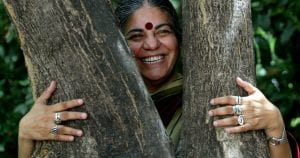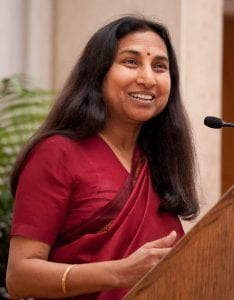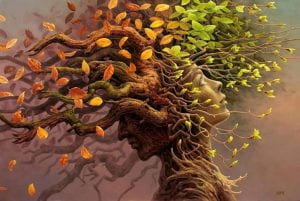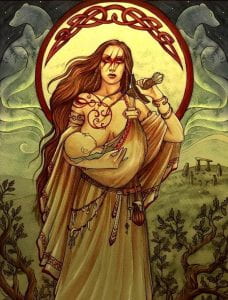
“Vegetarian food leaves a deep impression on our nature. If the whole world adopts vegetarianism, it can change the destiny of humankind.” – Albert Einstein

The image above is of a male figure cutting into a slab of meat. The way in which the man is standing is almost as if he has conquered something. The first thing that came to mind is this painting of George Washington; a strong and powerful man who has just conquered his enemy in battle. That’s the same connotation that meat evokes in the conversation relating to men. It is seen as the “manly” choice (Eisenberg). Choosing any other option will emasculate the male ego, which we can’t have that happen, can we?
We can clearly see two knives, one the man is using to cut the meat and the other is protruding from the top. Typically, when cutting into a slab of meat, one uses a knife to cut and a fork to hold it in place. This image shows two knives, the second not being used for anything which can lead the viewer to think more into the barbaric practice of the meat industry.
Burgers and wings are two foods that most people associate with men. They’re often paired with a beer and a sports game. Don’t get me wrong, I also like to enjoy a beer with my sports but it is something we’ve been conditioned to associate with masculinity. They’re messy to eat, often stain clothes, and no one bats an eye when the juices or sauces are all over a mans face. The male image has been constructed to portray only the things that will show their strength, virility, and brawn.
Salads, smoothies, or really just vegetables are more associated with femininity. Society has set certain rules and regulations for the female body image. Lighter calorie food options are “more feminine” options because of the smaller amounts of protein. The female image is supposed to be dainty, fragile, small. Lighter, smaller portioned food options are associated with this.
I have been a vegetarian for most of my life. I ate meat until about the age of three. It was around then that red meat started making me sick if I ate it, I decided pork in any form was gross, and would occasionally eat chicken. When I was about halfway through middle school I learned about how bad the meat industry really is and how poorly chickens are treated. As far as seafood goes, I won’t go anywhere near it. The fishing industry is just as bad and I don’t want to contribute to that.
When I was in the nightmare world of dating, I had guys either cancel a date or try to “convert” me because of my vegetarian lifestyle. It was also common for someone to wave money in my face, offering to pay me to eat a steak. “Don’t you just want to bite into a nice, juicy burger?” or “How could you be a vegetarian? You’re missing out on all the best food. ” are just two statements I’ve heard countless times in my life. Men, at least in my experience, don’t want to take the time to learn about another way of life because it would in some way impact them directly.
Most of my reasons for being a vegetarian are because I simply don’t like it, but a larger portion of it is due to moral reasoning. In her essay, Contextual Moral Vegetarianism, Deane Curtin discusses the ways in which vegetarianism directly concerns ecofeminists. Curtin describes vegetarianism as “a moral obligation that results from rights that nonhuman animals have in virtue of being sentient beings”. From a feminist perspective, why stop at vegetarianism? Why not continue to refrain from all foods that involve the abuse of animals and become vegan? “the consumption of eggs and milk have in common that they exploit the reproductive capacities of the female” (Curtin).
Ecofeminist, Greta Gaard discussed the relationship between humans and animals in her article, Ecofeminism on the Wing: Perspectives on Human-Animal Relations. Her article compares the similar natures between having an animal as a pet and having an animal in the food industry. She explains that “speciesism is defined as the oppression of one species by another” and alludes that feminists should concern themselves with this issue as they are both forms of oppression that need to be addressed (Gaard 2).
Both Curtin and Gaard express their thoughts about the morality of vegetarianism. Should we, as women, decide to live a vegetarian or vegan lifestyle? There are some women that choose to take on this challenge as a way to protest the patriarchal constructs of society and not contribute to the abuse of animals in the food industry.
Choosing to live this lifestyle “marks a daily, bodily commitment to resist ideological pressures to conform to patriarchal standards, and to establishing contexts in which caring for can be nonabusive” (Curtin).







 Like Shiva, Bina Agarwal is an Indian feminist who focuses heavily on environmental injustices, but more specifically the relationship between women and nature. In her article,
Like Shiva, Bina Agarwal is an Indian feminist who focuses heavily on environmental injustices, but more specifically the relationship between women and nature. In her article, 
